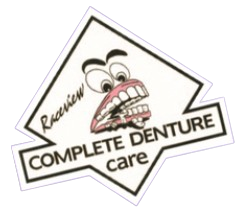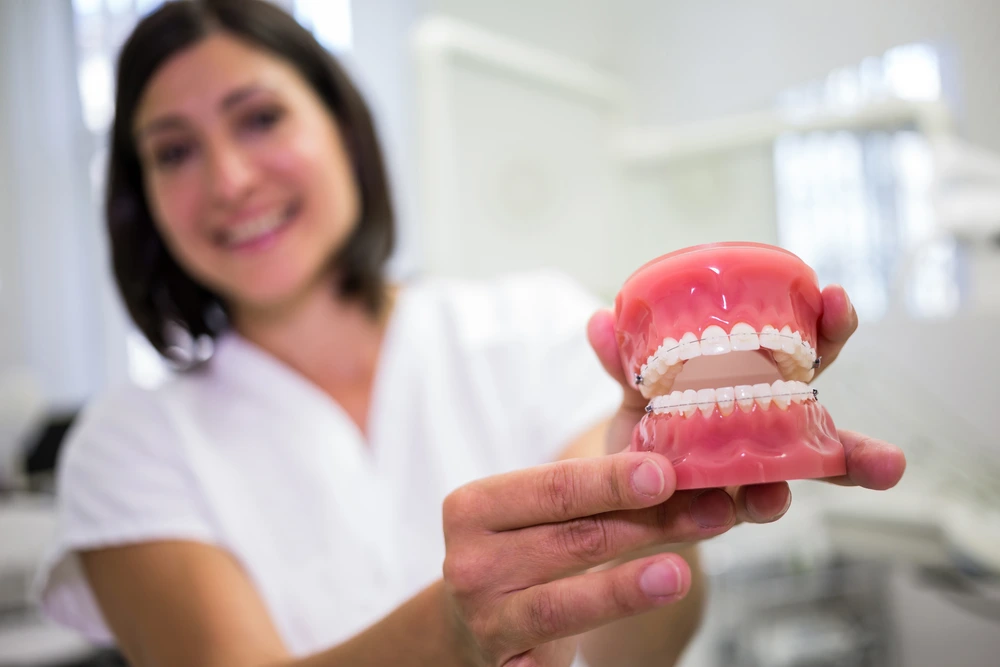Losing one or more teeth can be a challenging experience, affecting not only your smile but also your confidence and ability to eat comfortably. In Ipswich, Australians now have access to quick dentures, a fast and effective solution for tooth replacement. Unlike traditional dentures, quick dentures can often be fitted on the same day as tooth extraction, ensuring you don’t have to go without teeth while your gums heal. This innovative approach enables you to maintain your appearance and enjoy normal eating and speaking from the very first day.
Quick dentures are carefully designed using high-quality materials, providing both functionality and a natural look. They can be tailored to suit partial or full tooth replacement needs, making them versatile for a variety of dental situations. Advances in technology, including digital impressions and precise fabrication methods, have made quick dentures more comfortable and reliable than ever.
For residents seeking reliable, quick dentures in Ipswich, this solution provides an immediate way to restore their smile and confidence. Understanding the materials, costs, and lifespan of these dentures will help you make an informed choice for your oral health and lifestyle.
What Are Quick Dentures?
Dentures are custom-made prosthetic teeth designed to replace missing natural teeth. Quick dentures, sometimes called immediate dentures or same-day dentures, are fitted right away, often on the same day your remaining teeth are removed. Instead of waiting for gums to heal (the usual practice with conventional dentures), an immediate denture is prepared in advance and inserted as soon as your old teeth are out.
Choosing quick dentures means you’ll never have to walk around toothless during the healing period. However, because gums and bone will shrink after extractions, an immediate denture often needs early adjustments. Dentists may reline or tweak the denture in the first few months to ensure a snug fit. In contrast, traditional dentures are usually made after healing (often 3–6 months later), giving a more stable fit from the start. In short, same-day dentures trade some initial fit for the major benefit of no “gap” in your smile.
Materials and Modern Technology
Dentures are usually made from acrylic resin (a durable plastic) or a mix of plastic and a lightweight metal framework (typically cobalt–chrome). Full (complete) dentures are almost always acrylic, while partial dentures (for some missing teeth) may use metal clasps for strength. The pink gums in a denture are acrylic, and the teeth can be porcelain or acrylic.
These days, labs even use cutting-edge methods to improve dentures. For example, Queensland’s dental research teams are experimenting with 3D-printed materials to make dentures lighter and more precise. By printing hollow sections or using advanced polymers, they ensure the prosthetics are light enough for comfort but strong enough for durability.
- Full vs Partial Dentures: A full denture replaces all teeth in an upper or lower jaw, resting on the gums. A partial denture replaces only the missing teeth and uses clasps or attachments to grip your remaining teeth. If you still have some healthy teeth left, a quick partial denture can be fitted instead of a full set.
- Digital Scanning: Many clinics now use digital impressions instead of messy putty. This speeds up the process and improves accuracy for same-day dentures.
Cost of Quick Dentures in Australia
Dental treatment in Australia is mainly private pay; there are no standard fees, and prices vary widely between clinics. That means the cost of quick dentures can differ a lot depending on the dentist, the materials, and your needs. To get an idea: a typical full set of private dentures might run into the low thousands of dollars, though prices vary.
By contrast, Australia’s public dental schemes offer heavily subsidised rates for eligible patients. For instance, Queensland’s public dental services are free for concession card holders, and even in South Australia, a complete denture might cost only a few hundred dollars in a public clinic.
Because of this variability:
- Private vs Public: In a private practice, you’ll typically pay out-of-pocket (or claim through extras cover if you have private health insurance) for dentures. Medicare generally does not pay for adult dental services, so most adults fund them themselves. Some private health funds have dental extras that cover part of the cost, so it’s wise to check your policy.
- Estimating Your Cost: Before treatment, always ask your dentist for a detailed quote. Ask your dentist how much the procedure will cost, and consider comparing a few quotes.
- Children’s Benefits: (Bonus info) For Australian children eligible for the Child Dental Benefits Schedule, up to $1,052 in basic dental care (fillings, extractions, etc.) is covered over 2 years. This can include dentures in public or private clinics for kids meeting the criteria.
How Long Do Quick Dentures Last?
Even the best-made dentures won’t last forever. Over time, natural bone and gum tissue shrink, so any denture will slowly loosen. Dentures may need to be replaced after a period of time, usually several years, as your mouth changes. In practice, many wearers find their dentures stay functional for 5–8 years with good care, though this varies. If your denture starts to feel loose, causes sore spots, or the teeth wear down, it’s time for a reline or replacement.
With quick (immediate) dentures, this process can be even quicker. Since the denture was fitted immediately after extraction, the bone under it will resorb faster. Your dentist will usually schedule a reline or adjustment within a few months of an immediate denture.
Treat dentures like running shoes; they wear out. Regular check-ups are important. Healthdirect advises seeing your dentist at least yearly to ensure dentures still fit well. By catching fit issues early, you can maximize their life. With ideal care, plan on a new denture or refit every few years.
Caring for and Repairing Dentures
To make your quick dentures last, care is simple but essential. Your dentist will walk you through it, but some quick tips:
- Clean daily: Remove and brush your dentures at least twice a day. Use a soft denture brush (not toothpaste, which can scratch them) and mild soap or denture cleaner. Clean all surfaces to remove food and plaque.
- Rinse after eating: Swish or rinse dentures after meals to avoid buildup. This also helps you check for chips or cracks.
- Overnight soak (or rest): Take your dentures out before bed. This gives your gums a rest. Store them in water or denture solution overnight so they don’t warp.
- Handle carefully: Don’t drop them! A padded surface over the sink is a good idea.
- Regular dentist visits: See your dentist or prosthetist about once a year for exams. They can professionally clean, adjust, or reline the dentures if needed.
If your denture breaks or a tooth comes loose, don’t panic. Most clinics can repair them, often quickly. By following care instructions and seeking prompt repairs, you’ll extend the life of your dentures. Within a few weeks, many people find that eating and talking with their new teeth becomes much more natural.
Benefits of Quick Dentures
Why go quickly? Here are some clear perks of immediate dentures:
- Zero gap in your smile: You won’t have to spend even one day without teeth, maintaining confidence and appearance (no more “secret grin” needed).
- Immediate function: You can begin chewing soft foods right away, avoiding the frustration of spoon-feeding or extreme soft diets while you heal.
- Convenience: Often, fewer total appointments are needed. The denture is fabricated in advance, so placement is swift once teeth are removed.
- Facial support: Dentures help fill out your face to prevent the sunken look that can follow tooth loss. Quick dentures do this immediately, avoiding temporary facial collapse.
Of course, quick dentures also come with trade-offs, but for many, the instant smile is worth it. In short, they are a quick tooth replacement that lets life go on unhindered.
Conclusion:
In summary, quick dentures in Ipswich provide a reliable and convenient solution for restoring missing teeth, combining modern materials with advanced dental techniques. From full to partial dentures, these solutions allow you to regain functionality and confidence quickly. By understanding the materials, costs, and expected lifespan, you can make an informed decision that fits your oral health needs and lifestyle.
Proper care and timely adjustments are essential to ensure your dentures remain comfortable and durable over the years. Regular check-ups, professional cleaning, and prompt repairs help maintain fit and function, making quick dentures a practical long-term investment for your smile.
If you’re ready to restore your smile, book a free consultation with Raceview Complete Denture Care today. We also offer custom denture solutions, denture repairs and adjustments, and protective mouthguards, tailored to your needs. Take the first step toward a confident, comfortable smile. Schedule your free consultation now and experience expert, personalised denture care.
FAQs:
What are quick or same-day dentures?
Quick dentures (also called immediate dentures) are full or partial dentures that are prepared before tooth extraction and inserted on the same day your natural teeth are removed. This means you get new teeth immediately, instead of waiting months for healing as with conventional dentures.
How much do quick dentures cost, and are they covered by insurance?
The cost varies greatly. In private dental clinics, a full denture set can cost a few thousand dollars, whereas public clinics (for eligible patients) may charge only a few hundred. Medicare generally does not cover dentures for adults. However, some private health insurance funds have dental cover that can help. Always ask for a quote and check any insurance extras before you start.
How long do quick dentures last?
Like all dentures, same-day dentures usually last several years before needing replacement. Most people find that their dentures remain functional for 5–10 years with good care. Because immediate dentures are fitted right after extractions, you’ll likely have follow-up visits to reline or adjust them within the first few months. Regular check-ups help ensure a proper fit over time.


